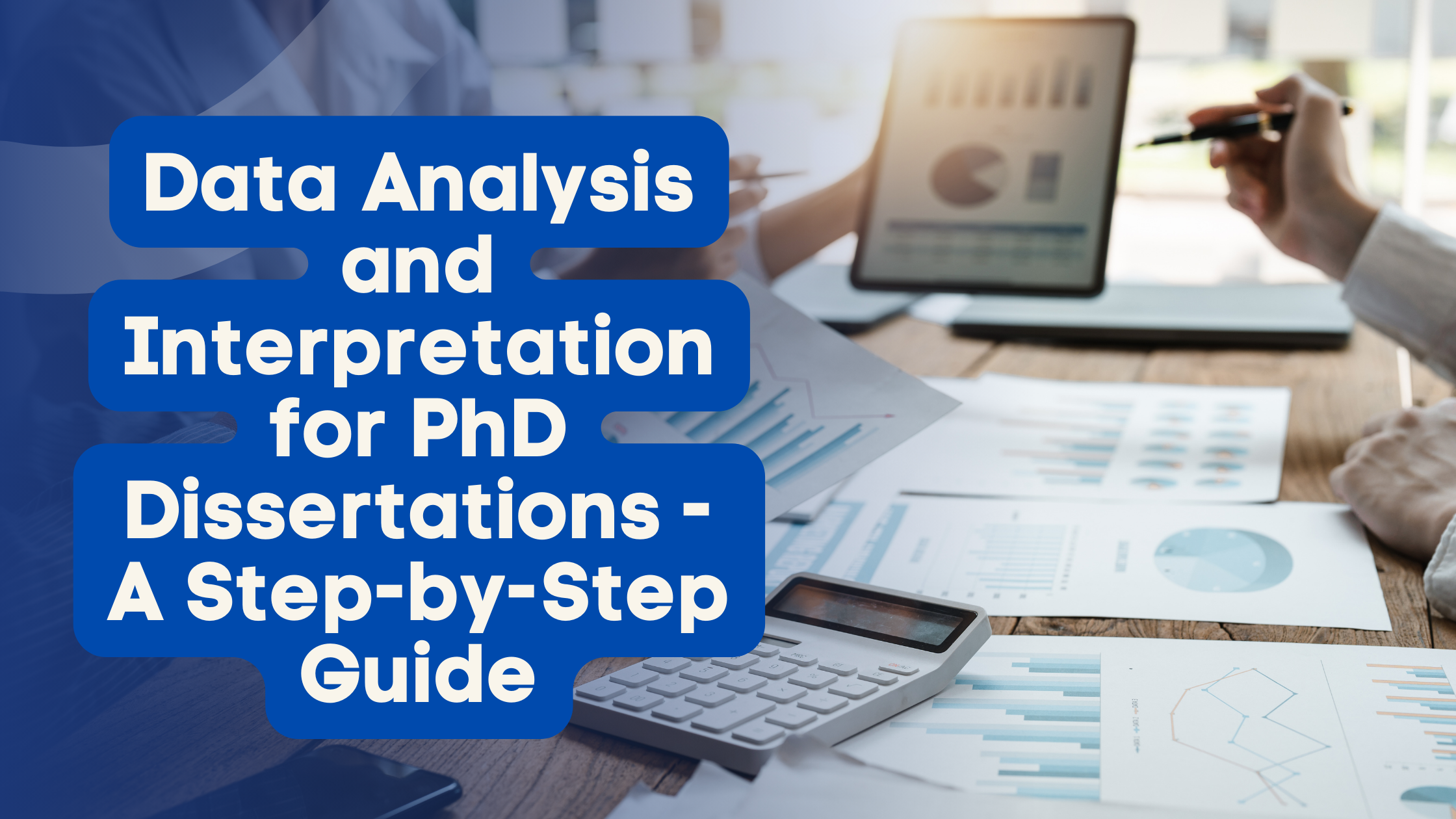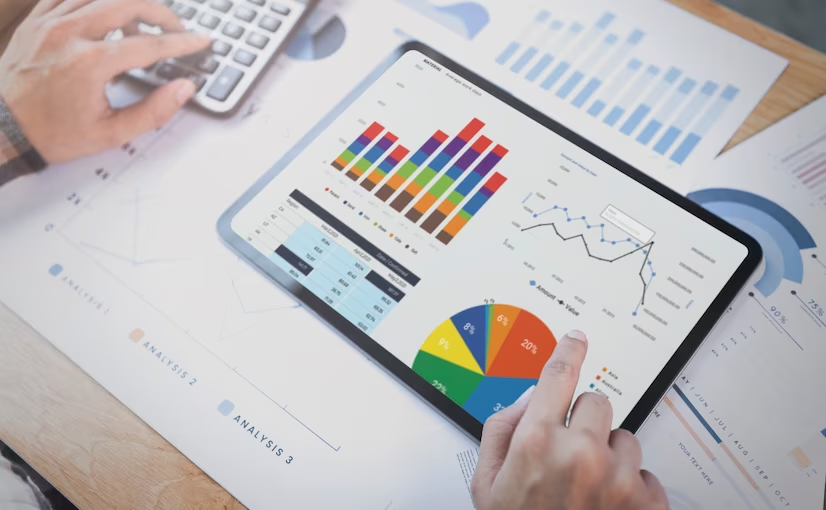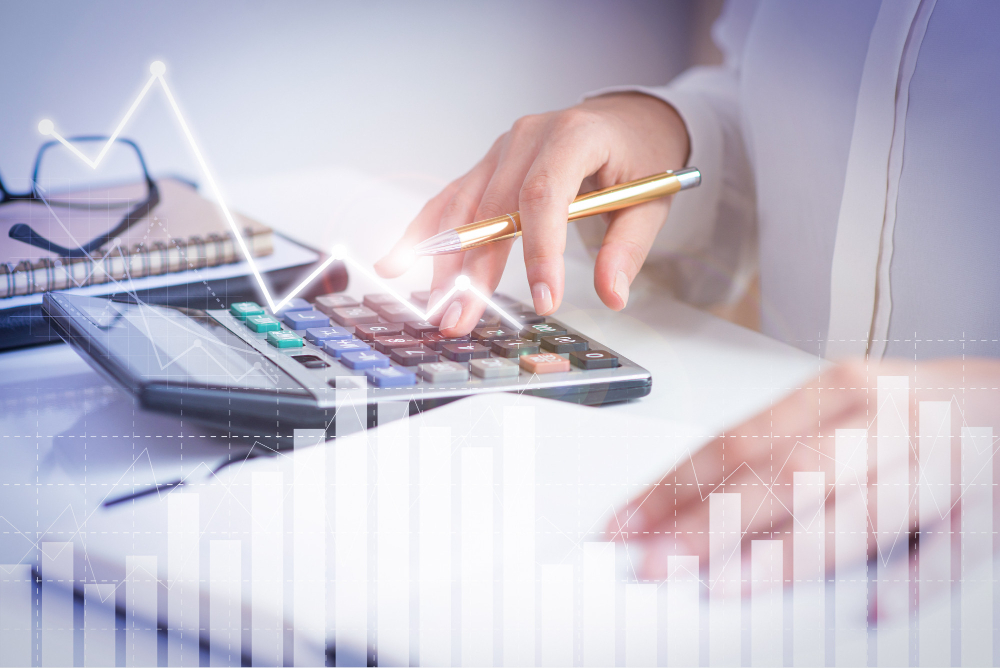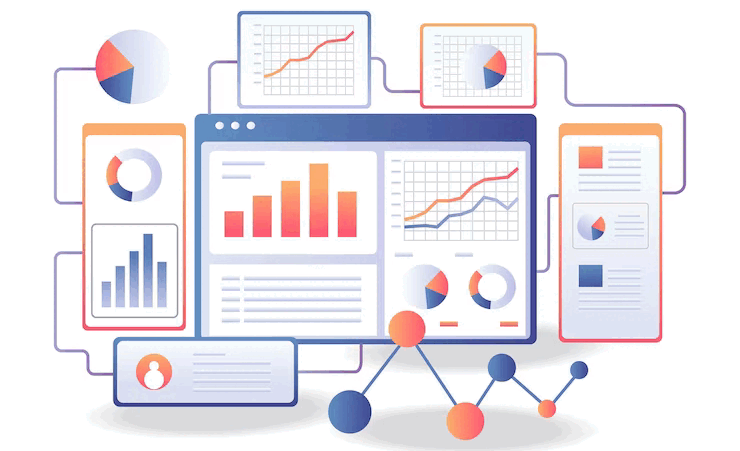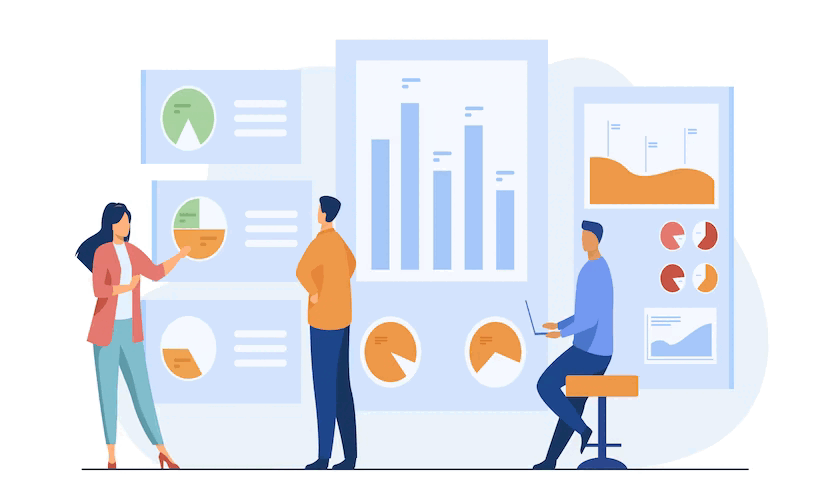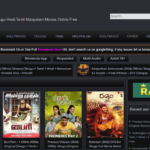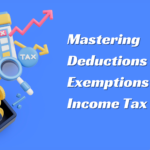Data Analysis and Interpretation for PhD Dissertations – A Step-by-Step Guide
- 1 According to Business Research Methodology
- 1.1 What is a Dissertation Data Analysis Plan?
- 1.2 Data Analysis and Interpretation for PhD Dissertation: Step-By-Step Guide
- 1.3 Collect Qualitative Data
- 1.4 Prepare Your Collected Data for Analysis
- 1.5 Select a Data Analysis Method
- 1.6 Apply Data Analysis Method on Your Dissertation
- 1.7 Interpretation
- 2 Conclusion
PhD dissertation is a complex and challenging process for most PhD students due to its multiple steps. It takes almost longer than one year to complete a doctoral dissertation. Some students typically spend their two years conducting research, reviewing literature review, organising raw data and then analysing it. Data analysis and interpretation for PhD dissertation is the most critical, toughest procedure that leaves stuck behind most of the students.
According to Business Research Methodology
Data analysis is going to involve identifying common patterns within the responses and critically analysing them to achieve research aims and objectives.”
In dissertation writing, the methodology chapter is a discussion of the methods of data analysis. In this section, you have to explain briefly how you analyse your primary data by using which data analysis method or a plan. Students find it tough as compared to other steps in the whole dissertation process and encounter a lot of challenges regarding it.
Over here, they require a step-by-step guide to overcome these hurdles. Furthermore, they can also avail of dissertation writing services and get quick solutions to all their problems without any hassle.
What is a Dissertation Data Analysis Plan?
A data analysis plan is a methodology that involves examining the primary and secondary data. In this process, the main focus is to analyse each research hypothesis. When developing a dissertation data analysis plan, it is crucial to address data cleaning, assumptions and transformations of the analyses, along with the strategy that you have chosen to analyse your data.
Usually, it takes 1 or 2 weeks to complete a data analysis and interpretation for a dissertation.
This process involves the following aspects:
- Editing your research questions and null/alternative hypotheses
- Choose your data analysis plan and specify the appropriate statistical technique to address the research questions within the justification and all the assumptions of your selected data.
- Provide a reference that supports your data analysis method
- Justify your sample size and explain what the plan entails.
Data Analysis and Interpretation for PhD Dissertation: Step-By-Step Guide
Data analysis and interpretation for PhD dissertation is a trickier procedure that requires students’ full dedication and time to develop an analysis plan. In this process, there are some steps that you have to pass through, such as:
Collect Qualitative Data
Qualitative data collection is exploratory and always focuses on discovery. This data type is robust evidence that students can use to support their main concept by focusing on reasoning, discovering insights, and in-depth analysis. Before you move to plan your strategy, you first need to collect data by using various data collection methods.
According to Grand Canyon University, some of the most commonly used data collection methods are as follows:
- Visual records
- Focus group observation
- One-on-one interviews
- Checking previous records
- In-depth self-observation by experimenting
Prepare Your Collected Data for Analysis
When done with data collection, it’s time to prepare it for qualitative data analysis. It is a very crucial and integral step in efficiently analysing your data and coming up with better interpretations.
To prepare data, you need to consider the following aspects:
- To know about unfamiliar words and tough terminologies, first, you must read your data multiple times.
- Identify and understand your research objectives for better clarification.
- Then, develop a structure in which you categorise and organise your data.
- Look at the overall concept and topic central subject matter and how your study design directly addresses the research question to solve it.
Select a Data Analysis Method
There are several PhD dissertation data analysis methods to analyse your collected data. The methodology you choose is directly related to your research question or problem statement.
Some of the most commonly used and effective methods are as follows:
- Content analysis
- Thematic analysis
- Narrative analysis
- Phenomenological analysis
- Grounded theory analysis
All the above methods are very effective and most commonly used in data analysis. You can choose any of them according to your field of study and research problem.
Apply Data Analysis Method on Your Dissertation
When selecting an appropriate data analysis technique, apply this methodology to your collected and analysed data. This provides a solid foundation for interpretation and evaluation.
It is important to collect data, organise it well and then analyse data carefully by implementing a suitable data analytical method for fruitful and meaningful insights.
Interpretation
After applying the data analysis strategy, you are now able to interpret. When you have reached your interpretation zone, you need to delve deeper into the text. For this purpose, you need to contextualise it and understand carefully where your topic of discussion sits in the grand scheme of things.
Consider its relevance to the subject matter and also its practical implementation. When you think about the central meaning and implementation of your study design, you need to ask some questions yourself to guide your interpretation process.
Such as:
- Can you infer it from the argument?
- Who will benefit from this research study design?
- Does the topic of discussion explicitly state its theoretical position?
- How does the concept compare to other academic literature in this area?
- Is it a debatable, controversial topic in the present or the near future?
- What perspective does it support, and what does it challenge in future?
- How does it set its position with distinctive features in contradicting establishments?
- What target audience might not apply this research study?
- What is the scope of this topic in regions, sets of different groups, and organisations?
- How might your own biases and theoretical stance affect your interpretation of the text?
When you ask yourself all the above questions for good qualitative data analysis and Interpretation for dissertation, obviously, you will find answers on your own because you are conducting this whole research.
If you do not find any answer, do more research according to the research question and find its appropriate answer. Answering these questions will help you develop a critical understanding of the text and get you closer to achieving the best evaluation.
Conclusion
Data analysis and Interpretation for PhD dissertation is all about better clarification, understanding, interpretation, and evaluation, which is a technical task instead of writing a simple paper. This section in the PhD dissertation is the central part on which the entire quality of your dissertation lies. Typically, almost every student finds difficulties while attempting this section. Some of them need a guide that will make this hectic process easier. For those, we have formulated a list of proven techniques for better results.
But if you find yourself still confused and stuck, then it is the better option for you to avail of dissertation writing help and get rid of this time-consuming and complex task. When you get these help from a reliable dissertation writing firm, you will get good analysis and interpretation help to develop valuable outcomes and ultimately enjoy high grades.

